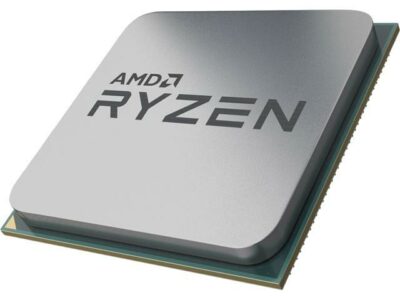How to Install or Reinstall AMD Ryzen 7 5800X Drivers?
Whether you own an AMD Ryzen 7 5800X or an older version of the same processor, you need to make sure that you’re up to date on your drivers. That way, you can get the best performance possible from your processor.
Download AMD Ryzen 7 5800X Drivers (Here)
Update or reinstall your drivers:
Getting the latest AMD Ryzen 7 5800X drivers is a must if you want to enjoy the best performance of your processor. But before you do that, you should know exactly how to install or reinstall them properly.
First of all, you’ll need to download the chipset driver package from the manufacturer’s website. In order to ensure a smooth installation, you should download the appropriate version for your PC.
Next, you’ll need to download the advanced driver updater from the manufacturer. This tool is able to scan your system for outdated drivers and automatically update them. It’s also available in both trial and full versions.
After installing the driver, you’ll have to reboot your PC in order to apply the changes. You should also close any open applications to avoid potential conflicts.
You should also check the AMD Bug Report Tool to submit a chipset driver bug report. This will require you to submit a log file.
Lastly, you should take a look at the AMD release notes. This list will list compatible AMD CPUs, chipsets, and other devices.
Speculative code store bypass:
Speculative code store bypass for AMD Ryzen 7 5800X drivers is a security issue that could allow malicious actors to read data values stored in memory. It takes advantage of a feature in high-performance processors called memory disambiguation predictors. Modern microprocessors are designed to perform store buffer searches in parallel. In cases where no match to the recent store is found, the processor will speculatively execute later program instructions to find the correct one.
Some microprocessors also track the number of conflicting loads and disable Speculative Store Bypass when many of them are found. This is done to prevent speculation on data in stale memory locations. Some processors will re-execute the process to resolve the conflicts.
Intel has been working hard to patch its CPUs following the discovery of Spectre, Foreshadow, and Meltdown. The company has shipped microcode updates to its ecosystem partners and expects to make the updates widely available in the coming weeks.
The vulnerabilities identified by Intel are not the only security issues in its processors. Researchers have discovered other issues relating to speculative execution. The company recommends software vendors analyze their codes for potential speculative execution-related vulnerabilities.
Floating-point value injection:
Floating-point value injection is not new to the CPU arena, but what is. One solution involves a hardware-based mechanism called DLBoost. In short, DLBoost is a software application that exploits the fixed-function hardware in your CPU to achieve accelerated matrix multiplication, thus boosting your CPU’s performance.
The latest AMD Ryzen 7 5800X driver is the first to include the aforementioned technology. It also includes a new chipset driver package that targets a critical security flaw. In other news, AMD and Amazon have teamed up to launch an Elastic Compute Cloud EC5a instance. They’ve also released a driver that improves the performance of Intel’s Sandy Bridge and Core i7 processors on Linux.
The best part is that AMD will be doing a similar thing for other CPUs in the coming months. They have announced that they are also working with Intel on a standardized performance state scaling driver that will eventually be available on all platforms. In other news, a new P-state driver for Intel Core CPUs has been released for Linux.
Data leakage:
Several days ago, AMD released a driver package for its Ryzen processors. This package, called the Platform Security Processor (PSP), addresses a security vulnerability that affects all Ryzen processors. It includes AMD Security Technology and fixes for critical security flaws.
The vulnerability affects Zen+ and Zen 2 microarchitectures. It produces illegal data sequences and can lead to the theft of sensitive information. Intel and AMD are both in the process of patching the vulnerability. In order to prevent this attack, AMD recommends using LFENCE instructions in application packages and adding security measures to the operating system. It has also advised software developers to add their own security measures.
The PSP is designed to keep sensitive information safe. It is usually only accessible by administrators. It has been a target of research, and a couple of years ago, a researcher wrote a tool called “PSPTool” to allow users to identify and remove vulnerabilities.
Earlier this year, a cybersecurity team found a Meltdown-Like vulnerability in the AMD processors. It was not disclosed to AMD until October, and it has not been fixed yet. However, Kyriakos Economou, co-founder of the security research firm ZeroPeril, published a report about the attack.

